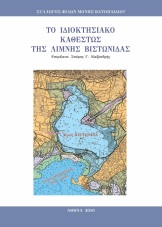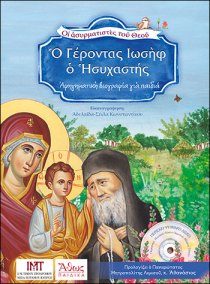 πηγή: συν-οδοιπορία
πηγή: συν-οδοιπορία
Στο πλαίσιο των αφιερωμάτων του Νυχτερινού Ραδιοφώνου της Πειραϊκής Εκκλησίας σήμερα Κυριακή 14 Αυγούστου στις 10.30 το βράδυ θα Διαβάστε τη συνέχεια του άρθρου »

 πηγή: συν-οδοιπορία
πηγή: συν-οδοιπορία
Στο πλαίσιο των αφιερωμάτων του Νυχτερινού Ραδιοφώνου της Πειραϊκής Εκκλησίας σήμερα Κυριακή 14 Αυγούστου στις 10.30 το βράδυ θα Διαβάστε τη συνέχεια του άρθρου »
Μια από τις μεγαλύτερες γιορτές της Ορθοδοξίας είναι η 15η Αυγούστου, ημέρα της Κοίμησης της Θεοτόκου. Στον ελληνικό λαό η επίκληση της Παναγίας είναι η περισσότερο καθιερωμένη. Η Παναγία διεκδικεί τα περισσότερα προσωνύμια που προέρχονται από:
– τον τρόπο αγιογραφίας της Εικόνας Της (π.χ., Βρεφοκρατούσα, Γλυκοφιλούσα)
– τη θεολογική ιδιότητα (π.χ., Ελεούσα, Κυρά, Μεγαλόχαρη) Διαβάστε τη συνέχεια του άρθρου »
του Δημητρίου Σίγκου
«Tίς δυνήσεται ειπείν ¦ εγκωμιάσαι την Παρθένον; Την Θεόν μετά Θεού;» (Άγιος Ανδρέας Κρήτης). Πώς ν’ αρχίσει να μιλά κανείς για την Παναγία μας;
Τι λόγια να γράψεις για τη Μητέρα Του Χριστού και τη Μητέρα των χριστιανών; Μέσα στο απερίγραπτο πνευματικό κάλλος της Κυρίας Θεοτόκου, κι αυτοί ακόμη οι Θεοφόροι Πατέρες της Εκκλησίας μας δεν μπόρεσαν να καλύψουν, με όλους τους ύμνους, με όλες τις αγγελικές ωδές, με όλες τις θεολογικές συλλήψεις τους, με τις μουσουργικές τους κιθάρες και με τις χορδές του Αγίου Πνεύματος, Διαβάστε τη συνέχεια του άρθρου »
![]()
by St. Gregory Palamas
Both love and duty today fashion my homily for your charity. It is not only that I wish, because of my love for you, and because I am obliged by the sacred canons, to bring to your God-loving ears a saving word and thus to nourish your souls, but if there be any among those things that bind by obligation and love and can be narrated with praise for the Church, it is the great deed of the Ever-Virgin Mother of God. The desire is double, not single, since it induces me, entreats and persuades me, whereas the inexorable duty constrains me, though speech cannot attain to what surpasses it, just as the eye is unable to look fixedly upon the sun. One cannot utter things which surpass speech, yet it is within our power by the love for mankind of those hymned, to compose a song of praise and all at once both to leave untouched intangible things, to satisfy the debt with words and to offer up the first fruits of our love for the Mother of God in hymns composed according to our abilities.

The Assumption of Theotokos by Murillo
Although probably not unknown in the early Church, the earliest references to the Assumption of the Virgin Mary appear in the 4th (or possibly late 3rd) century in Liber Requiei Mariae(The Book of Mary’s Repose), and in the writings of a Bishop Meliton. […] St. John of Damascus (d. AD 755) relates a tradition where, during the Council of Chalcedon (AD 451), the emperor Marcian and his wife wished to find the body of Mary. He tells how all the apostles had seen her death, but her tomb was empty upon inspection.
Who is she who rises resplendent, all pure, and bright as the sun?
There is no mention of the Dormition or Assumption in the New Testament, only in apocryphal sources, but it is one of the earliest feast observed in the church. The feast of the Dormition dates at least from the 5th C. It was always celebrated in Jerusalem on this date, whilst in some other parts of the Eastern church the date varied. In the 7th C, the Byzantine emperor, Maurice decreed that the Dormition be celebrated everywhere on the 15th. Later the Western Church adopted the same date, but always kept it simply as the Assumption.





